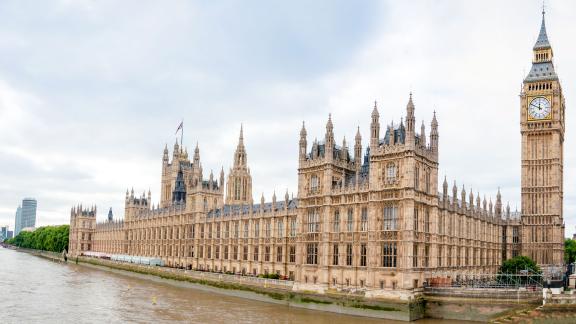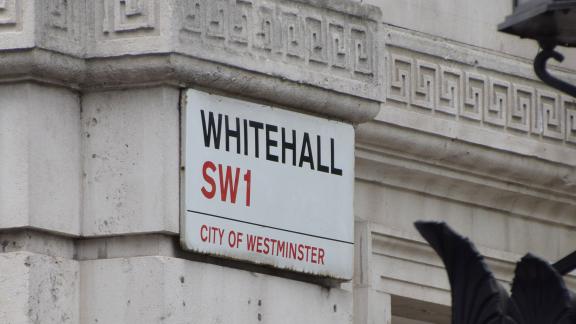Health and care bill: ping pong stages - Lords second round
Key points
- The NHS Confederation largely supports the Health and Care Bill. There is clear consensus across our membership that the future of health and care must be based on collaboration and partnership working at a local level, which this Bill facilitates.
- The Bill is, in most part, based on recommendations from NHS England and NHS Improvement (NHSEI), as well as local health and care leaders, to remove legislative barriers to the local integration of care services. In practice, this integration is already underway across England. In many ways, the legislation is therefore catching up with what is happening on the ground.
- Our members – leaders across the NHS – agree that the Bill should be as permissive as possible. It should act as an enabler of integration and local flexibility, empowering local leaders to make decisions in the best interests of their populations rather than an overly prescriptive set of centralised rules.
- We have a number of concerns in relation to the Bill: 1) The timing of the legislation and the need for Royal Assent by end of April to meet the July 1 implementation date. We urge peers to ensure the Bill passes by the end of April. 2) New powers for Secretary of State over local service reconfigurations. We urge peers to vote for government amendments 30C to 30K in lieu that would put essential checks and balances on the use of these powers. 3) Inadequacy of current workforce measures in the Bill. We urge peers to get assurances from the Minister on the record with regards to workforce strategy.

Timing of the Bill
The implementation date for statutory integrated care systems (ICSs), already delayed from 1 April, is currently set for 1 July.
Any further delay to the implementation date would be disruptive and unwelcome. The NHS Confederation has already highlighted the significant problems caused to ICS leaders by the initial delay to July. The implications for accountability, finances, HR and a range of other issues would be even more severe with another delay.
We urge peers to press the government to compromise on the issues of most concern to NHS leaders and let them get on with delivering integrated care.
Local reconfigurations (Clause 40)
Lords amendments 30B and 108B
Our members’ most pressing concern regarding the Health and Care Bill is the significant new powers for the Secretary of State to intervene at any stage of a local service reconfiguration, with no minimum set of information requirements on which to base such a decision.
They believe this change risks undermining progress towards integration in the following ways:
- The ability of hospitals, GP surgeries, clinics and other local NHS organisations to make important and sometimes difficult decisions about the services they provide is significantly reduced. This takes away local expert accountability, which is a key aspiration of the Bill.
- Without clinical advice, local input, or public transparency over local service reconfiguration decisions, the quality and safety of patient care may be at risk.
- The current wording of the Bill would allow the Secretary of State for Health and Social Care to intervene, with no limitations, in a decision on local services for political reasons.
- Empowering local health and care leaders to make service decisions around the needs of their local communities is critical to meeting rising demands as the NHS addresses the elective backlog. Allowing central intervention to override local decisions undermines this principle.
For these reasons, 80% of our members disagreed with the statement ‘the new powers for the Secretary of State in the Health and Care Bill will benefit patients’ when we surveyed them last year.
We have worked over previous months to put at the very least, important checks and balances on these powers. We are pleased government has brought forward amendments in lieu of Lords amendments 30B and 108B that would ensure:
- Both NHS organisations and health overview & scrutiny committees (HOSCs) affected by an intervention on local services by the Secretary of State for Health and Social Care will have to be consulted and their responses published.
- Removal of the requirements for NHS leaders to notify the Secretary of State for Health and Social Care whenever they are planning (or even considering) a change to services. Secretary of State will only need notification on complex & substantial reconfigurations.
- Require the Secretary of State for Health and Social Care to make a decision on a proposed service change within 6months of ‘calling it in’ for consideration.
Our ask
We encourage peers to vote in favour of the government’s amendments 30C to 30K in lieu to put these important checks and balances on the new powers.
Workforce (Clause 35)
Lords Amendment 29B
Our members are clear that NHS workforce planning and funding is a key part of ensuring quality and safe care for patients both now and in the future. The duty on the Secretary of State for Health and Social Care in the Bill as it stands does not go far enough in ensuring we know we are training enough people to deliver health and care services that meet the needs of the population in future.
In a survey of our members undertaken shortly last December, 9 in 10 said that a lack of staffing in the NHS is putting patient safety and care at risk.
We are one of almost 100 health and care organisations, led by the Royal College of Physicians, that have been calling for the bill to be amended to mandate independent assessments of current and future workforce numbers to be published regularly.
We welcomed amendment 29B being passed Report Stage, which is an amended version of a previous amendment that seeks compromise with the government, and are disappointed MPs voted against it yesterday.
Our ask
We encourage peers to press the Minister for on the record assurances regarding the Health Education England workforce strategy the government have commissioned:
- What funding will government provide funding for implementation?
- Whether the strategy will include social care?
- What time period it will cover?
- If it will consider population demand?



